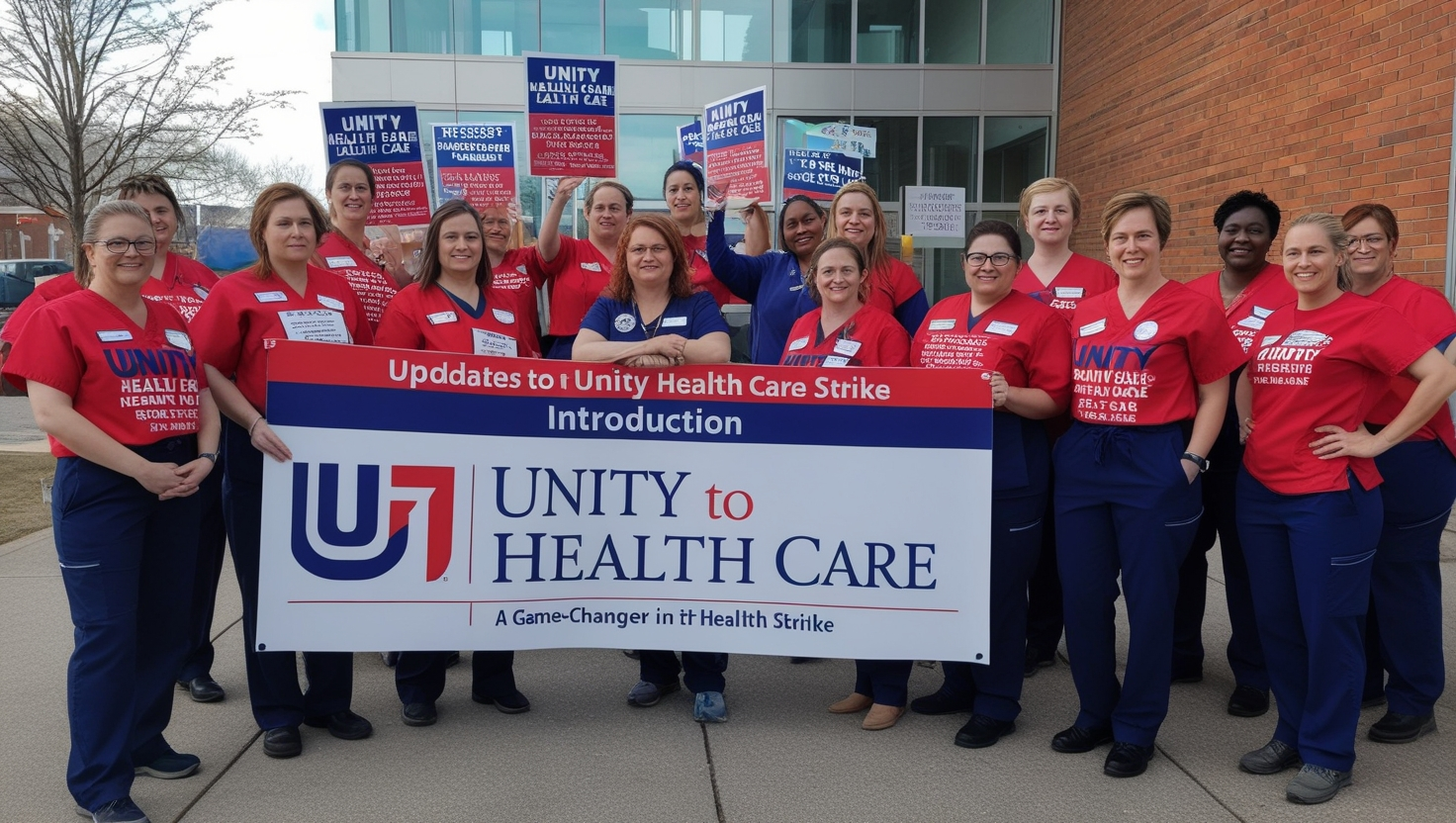
Introduction
Unity Health Care employees have made their voices heard loud and clear in a defining moment for healthcare workers. After months of grievances related to unfair labor practices, rising resignation rates among healthcare providers, and the unjust firing of support staff, the union representing these workers has overwhelmingly authorized a strike. As this major labor action draws closer, it raises important questions about the future of healthcare delivery in the region, the working conditions of healthcare professionals, and the overall quality of patient care. This article takes a deep dive into the updates to Unity Health Care strike, analyzing its causes, potential consequences, and the broader implications for healthcare workers and the community.
Understanding the Updates to Unity Health Care Strike
The updates to Unity Health Care strike are not just another protest—it is a critical response to a growing list of labor-related issues festering within the organization. For months, employees, including healthcare providers and support staff, have voiced concerns over unfair labor practices. These grievances are not isolated incidents but a systemic issue escalating at Unity Health Care. From inadequate compensation to deteriorating working conditions, the staff’s frustration has reached a tipping point, leading to the vote for a strike.
One of the most significant triggers for the updates to Unity Health Care strike has been the firing several support staff members. Many workers believe these terminations were not only unwarranted but were also a retaliatory move against those vocal about the ongoing labor issues. Combining all these factors has created a perfect storm, resulting in the overwhelming strike authorization.
The Grievances Leading to the Updates to Unity Health Care Strike
The updates to Unity Health Care strike can only be fully understood by delving into the grievances built up over time. Among the primary concerns voiced by healthcare workers are the following:
- Unfair Labor Practices: Employees have reported unfair labor practices, including management’s refusal to engage in meaningful dialogue, the imposition of unreasonable working hours, and a lack of support for employee wellbeing.
- Provider Resignations: The organization has seen a significant loss of healthcare providers, with many resigning due to frustration with management, inadequate pay, and excessive workloads. This resignation wave has created an untenable situation, with the remaining staff needing help to keep up with patient care demands.
- The Firing of Support Staff: The termination of several support staff members has fueled the fire. Many employees believe these dismissals were not justifiable and were done as an act of retaliation for speaking out about working conditions.
- Inadequate Compensation: Healthcare providers and support staff have expressed dissatisfaction with their compensation, citing that their salaries must reflect their demanding nature or critical role in the healthcare system.
- Burnout and Mental Health Issues: The pressure of handling increased workloads and dealing with understaffing has led to widespread burnout among workers. This has raised serious concerns about the mental health of employees and their ability to continue providing high-quality care.
The Impact of the Updates to Unity Health Care Strike on Patients
The updates to Unity Health Care strike are not just a matter of internal labor disputes; they also have significant patient implications. Unity Health Care is a key provider of healthcare services in the region, and any disruption to its operations could have a cascading effect on the community.
Patients may experience delays in care, longer wait times, and reduced access to vital health services. The strike could also exacerbate health disparities, particularly for vulnerable populations relying on Unity Health Care for affordable and accessible healthcare. These inconvenient disruptions could worsen health outcomes for many individuals who depend on these services.
The Response from Unity Health Care Management
In the face of the updates to Unity Health Care strike authorization, the organization’s management has responded by promising to address the workers’ concerns, though details remain vague. Unity Health Care has indicated they are committed to improving working conditions and ensuring that healthcare providers are properly supported. However, critics argue that these promises have been made before and that the organization’s track record on labor issues could be better.
The Path Forward: What’s Next for Unity Health Care?
The updates to Unity Health Care strike have set the stage for what could be a prolonged labor dispute. The strike has yet to begin, but the strike vote and overwhelming approval signal that workers are only willing to back down once their demands are met. The situation is fluid, and the coming weeks will likely intensify pressure on both sides to agree.
The future of Unity Health Care depends on its ability to resolve these issues and come to the negotiating table with its employees in good faith. Failure to do so could lead to a prolonged strike, harming the organization’s reputation and ability to deliver care.
What Can Be Done to Prevent Future Strikes?
The situation at Unity Health Care highlights the need for systemic change in the healthcare industry. To prevent future strikes and address the underlying issues, healthcare organizations must prioritize the Wellbeing of their workers. This includes fair compensation, reasonable working hours, and a supportive work environment that fosters employee satisfaction and mental health. Additionally, organizations must communicate transparently with their employees, ensuring that concerns are addressed before they escalate into full-blown strikes.
Conclusion
The updates to Unity Health Care strike highlight a critical moment in the ongoing struggle for fair labor practices in healthcare. The concerns of Unity Health Care employees are not isolated; they reflect a larger issue within the healthcare industry. As the strike vote clarifies, workers are no longer willing to accept poor working conditions, unfair treatment, and inadequate support. The future of healthcare in the region depends on how management responds to these issues. Failure to address employees’ grievances could lead to a prolonged strike, with serious consequences for the healthcare workers and their patients.
FAQs
1. What prompted the Unity Health Care strike?
The strike was prompted by months of unfair labor practices, rising provider resignations, and the unjust firing of support staff.
2. How will the strike affect patients?
The strike could lead to delays in care, longer wait times, and reduced access to health services, especially for vulnerable populations.
3. What are the key issues at the heart of the Unity Health Care strike?
Unfair labor practices, inadequate compensation, provider resignations, and the firing of support staff primarily drive the strike.
4. How has Unity Health Care management responded to the strike vote?
Management has promised to address workers’ concerns but has yet to provide specific details on how they plan to resolve the issues.
5. What are the potential long-term impacts of the Unity Health Care strike?
The strike could worsen patient healthcare outcomes and strain Unity Health Care’s reputation and workforce.
6. What can be done to prevent future healthcare strikes?
Preventing future strikes requires improving working conditions, fair compensation, and open communication between healthcare organizations and workers.


